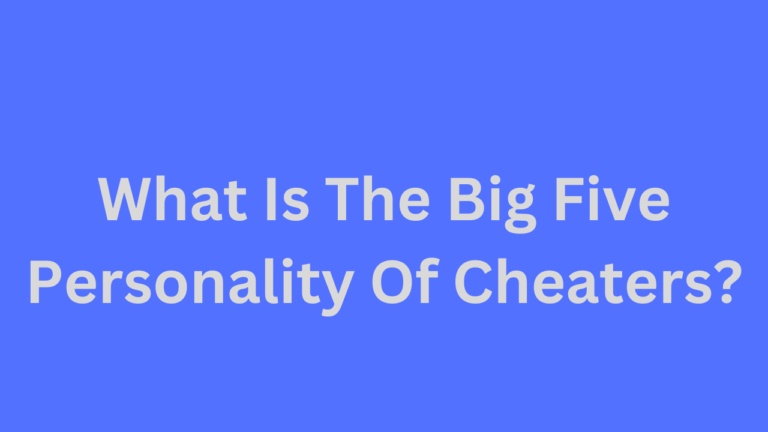The Big Five personality traits are a significant part of the landscape of human behaviour that aids in the understanding of why people cheat. The Big Five or the Five Factor Model is a set of five broad dimensions of personality: openness, conscientiousness, extraversion, agreeableness and neuroticism, which is represented by the acronym OCEAN. In turn, we can consider the cheater under all five of these.
Openness: Those who are highly open to experience are replete with imagination and curiosity, but this trait in isolation is unlikely to be enough for a person to cheat. It is, however, a trait of a cheater willing to take chances on new (and socially disapproved) situations. It might also prompt a highly open person to crave something novel or an exciting new adventure, taking risks that venture beyond typical moral boundaries.
Conscientiousness: Conscientiousness is a measure of an individual’s degree of orderliness, responsibility and self-discipline. Cheaters can be high or low in conscientiousness. Those low in conscientiousness may be more impulsive and more likely to respond immediately to their desire to date another person before they have properly considered the consequences of their actions; for example, a partner’s discovery of the cheating. Those high in conscientiousness might also be cheaters. But they generally would plan their infidelity more carefully. They’d be more diligent in taking steps to hide their affairs from their partner and their friends, because they don’t want to be caught.
Extraversion: Sociability, assertiveness and positive emotionality.The extravert can be gregarious and outgoing but could also look outside the relationship for confirmations and excitement – which might tip them toward an affair, both the excitement of sexual contact with someone else, as well as the thrill of a secret affair and the possibility of new relationships.
Agreeableness: warmth, sympathy and cooperation. Counterintuitively, however – particularly for the moralist – the agreeable person can be a cheater, too (although, again, the reasons are different than for the disagreeable person). First, the agreeable person may value relationship harmony so strongly that they’d rather remain with a cheating partner than confront the cheating to a primary relationship, determining it a problem they’d rather avoid. Second, they might be quite empathetic but, because their empathy has broadened to extend towards more than one partner, they do not experience much regret or conscience pangs over transgression.
Neuroticism: neuroticism correlates with anxiety, moodiness and insecurity of personality. As such, a neurotic individual is much more likely to be jealous and insecure about a partner’s fidelity, yet is also likely to be a cheater themselves, prompted by the desire to self-validate through the attentions of another in need of validation, thereby relieving one’s internal stress. For example, a neurotic individual might cheat on a partner in order to feel better by way of validation from an outside source.
Despite this insight, learning about a cheater’s Big Five personality traits casts the relationship between individual differences and relationship complexity in grey, rather than black, and white. We must be careful not to over-generalise from our research. While these personality traits never fully explain nor excuse behaviour, they do provide helpful insights where cheating is one of the variables contributing to individual differences, upbringing, culture, and unique situations. In the end, there is no substitute for clear communication, mutual respect, and trust when it comes to the complexities of human mating.

